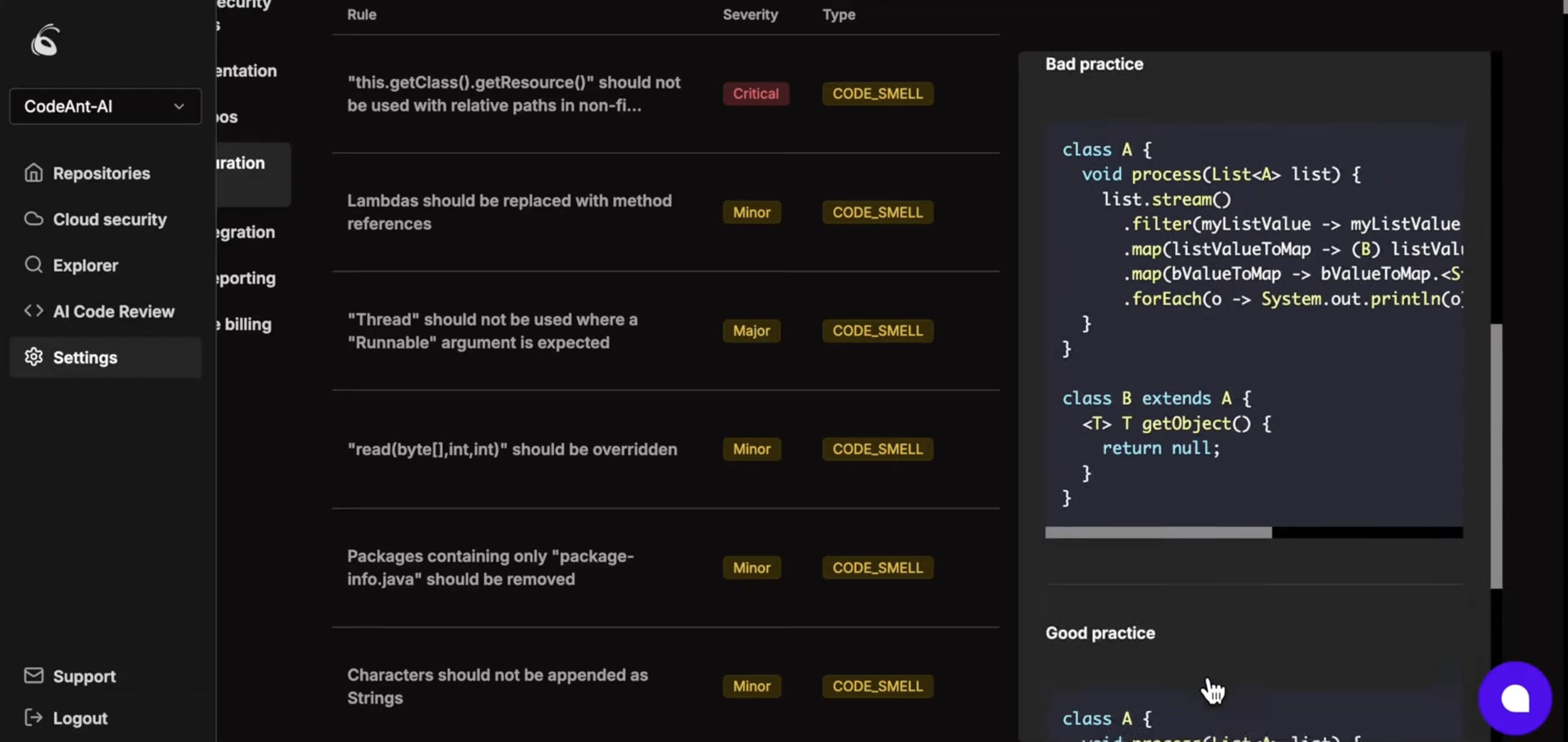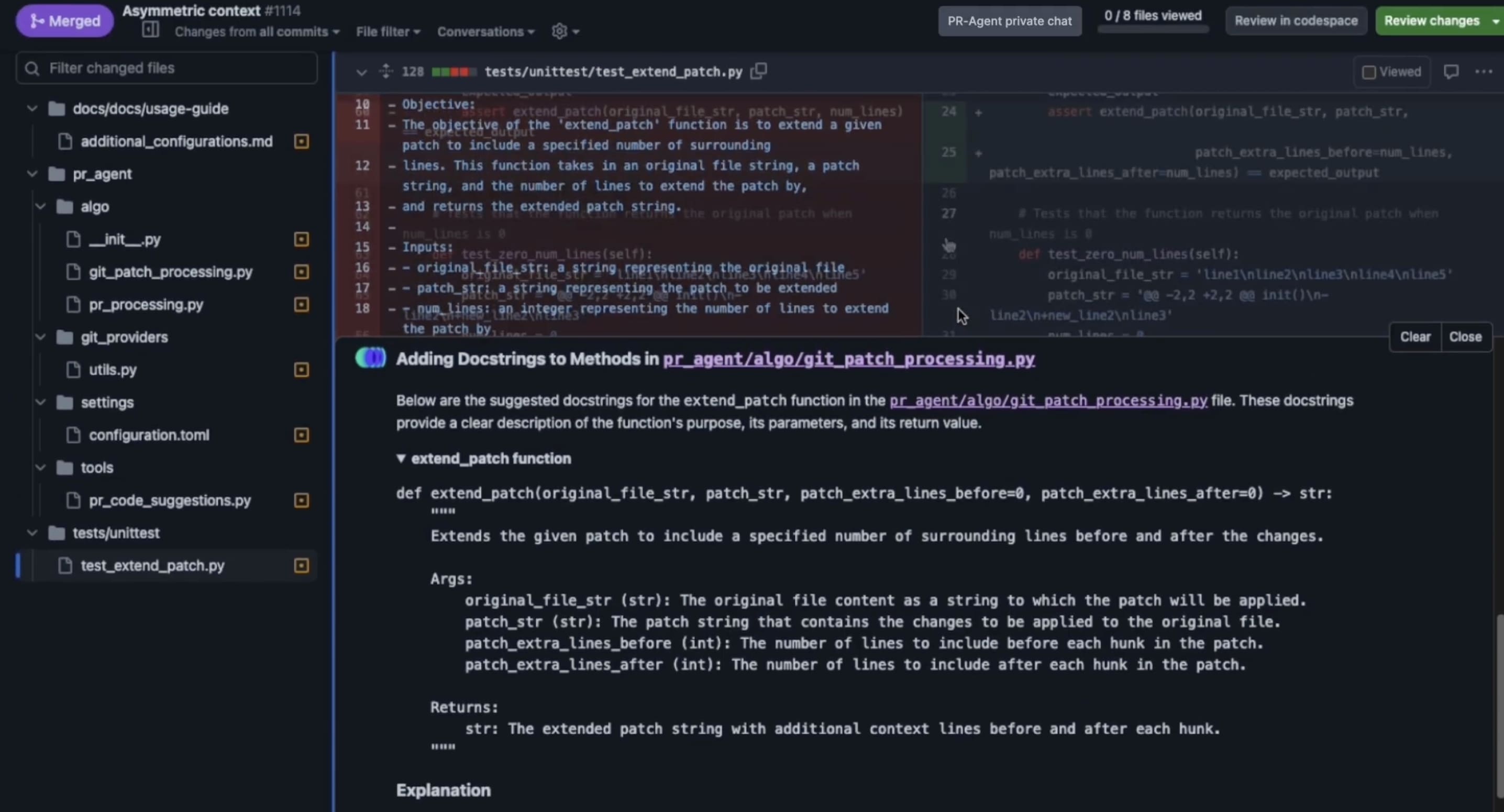Jan 30, 2025

AI code review tools are becoming more common, but not all of them are the right fit for every team. If you’re a CodeRabbit user who feels like it’s missing something—whether it’s better integrations, specific features, or improved feedback—you’re not alone. We’ve looked into the top options and narrowed it down to six alternatives that really stand out. These tools not only address the gaps in CodeRabbit but also offer unique features to fit different team needs.
The top alternatives to CodeRabbit
Trag for customizable AI-driven code reviews and semantic analysis.
Codeant.ai for real-time feedback on code quality and performance.
Qodo Merge (formerly Codium AI) for automated testing and code improvement suggestions.
Korbit.ai for adaptive learning-based code reviews and training insights.
Greptile for efficient code search and error detection across repositories.
GitHub Copilot for code generation and enhancing developer efficiency.
What is CodeRabbit?
CodeRabbit is an AI code review tool built to make pull requests faster and easier. It scans your code, flags issues like bugs or performance problems, and suggests fixes on the spot. With customizable rules and GitHub integration, it fits right into your process. While CodeRabbit is excellent for speeding up manual reviews and maintaining code consistency, it may fall short for larger teams or enterprises needing advanced analytics, integrations, or highly specific customizations.
Best CodeRabbit alternatives for small businesses
Trag

Trag uses AI to make code reviews smarter, faster, and more efficient. It provides real-time feedback on pull requests for catching issues early. Teams can create custom rules to align reviews with their project’s unique standards, for a consistent high-quality code. Easy and simple integration with GitHub and GitLab makes it quick to incorporate into existing work spaces. With its focus on clear, actionable insights, Trag simplifies the review process and keeps code clean and reliable.
CodeRabbit vs. Trag
Trag stands out with its ability to provide context-aware feedback that adapts to each project, something CodeRabbit lacks. Its customizable rules and analytics dashboard make it especially convenient for teams that need detailed insights and flexibility beyond CodeRabbit’s current capabilities.
Codeant.ai

CodeAnt AI combines the power of artificial intelligence with Static Application Security Testing (SAST) to identify critical code issues and vulnerabilities. It does line-by-line analysis and concise pull request summaries, helping teams address potential problems easily. While it supports integration with IDEs like Visual Studio Code and JetBrains, it does not currently integrate with GitHub, which may be a limitation for some teams. Codent AI also has customizable rules to fit everyone's needs and provides real-time AI code reviews and checks for maintaining secure and high-quality code.
CodeRabbit vs. CodeAnt AI
While CodeRabbit automates code reviews, CodeAnt AI makes it better by combining AI with Static Application Security Testing (SAST), offering thorough security checks. Its customizable rules and real-time AI reviews wins a team's precious time back. However, CodeAnt AI’s lack of GitHub integration might be a limitation for some teams.
Qodo Merge

Qodo Merge, formerly Codium AI, is an open-source tool built to make pull request (PR) reviews easier. It analyzes PRs, learns your coding style, and suggests improvements based on it. You can trigger reviews manually or let them run automatically, saving time during the review process. Qodo Merge works with platforms like GitHub, offering quick analysis and practical suggestions for better code reviews.
CodeRabbit vs. Qodo Merge
CodeRabbit automates code reviews, but Qodo Merge goes a step further by learning your coding habits and giving more specific suggestions. Its direct Git integration and ability to generate clear PR descriptions make it a more personalized option for teams looking for smarter reviews.
Korbit.ai

Korbit.ai is an AI-powered code reviewer that integrates directly into GitHub and Bitbucket Cloud. It is free for open-source projects and acts as an initial reviewer, providing instant feedback on pull requests by identifying bugs, performance issues, and security weaknesses. Korbit's AI learns from user input, such as downvotes, to improve its suggestions over time. It also generates clear pull request descriptions and offers interactive explanations to help developers understand and fix problems. Its management dashboard provides insights into code quality and team performance, making it a great tool for both developers and managers.
CodeRabbit vs. Korbit.ai
Unlike CodeRabbit, which focuses on speeding general code reviews, Korbit.ai brings unique learning capabilities by improving its suggestions through user feedback. Its ability to adapt over time and focus on open-source projects makes it a valuable option for teams looking to perfect their systems while offering free tools for public repositories.
Greptile

Greptile is a code review tool that specializes in providing full context of the codebase during reviews. By analyzing the entire repository, it helps developers understand how specific changes impact the broader system. Greptile is designed to reduce blind spots in reviews, offering insights into dependencies, functionality, and potential issues that might not be obvious from isolated changes.
CodeRabbit vs. Greptile
Unlike CodeRabbit, which is great at automating specific tasks, Greptile focuses on giving a broader perspective. It gives a complete view of your codebase, helping teams understand how changes affect the bigger picture. If you’re working on complex projects and need deeper insights, Greptile might be the better fit, while CodeRabbit is better as speed and automation.
Best CodeRabbit alternative for enterprises
GitHub Copilot

GitHub Copilot, powered by OpenAI, is designed to assist developers by suggesting code snippets and even writing entire functions based on comments. It integrates directly into your IDE, offering real-time suggestions to speed up coding. While it's helpful for individual developers and small teams, enterprises benefit most from its ability to speed run repetitive coding tasks at scale. However, it can occasionally produce overly complex or irrelevant suggestions.
CodeRabbit vs. Copilot
While CodeRabbit focuses on structured code reviews and actionable feedback, GitHub Copilot stands out as a code generation assistant. For enterprises needing scalable support for large teams and repetitive tasks, Copilot’s real-time coding suggestions provide a significant edge. However, CodeRabbit is better for targeted code review tasks.
Related reading: The top 7 SonarQube alternatives of 2025
The best CodeRabbit alternative
If CodeRabbit isn’t meeting your needs, Trag offers key features like automated code review for faster, more focused feedback. With its context-aware suggestions, it helps teams address issues specific to their projects. Customizable rules give you the flexibility to align reviews with your coding standards, making Trag a great solution for teams wanting clarity and control in their code review process.
Try Trag
Automate the knowledge your team has
and speed up code reiews.



